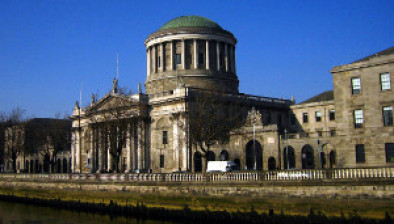High Court: FBD Insurance liable to pay out to publicans for coronavirus losses under policy

Killian Flood BL
In a landmark judgment, the High Court has ruled in favour of four pub owners who claimed that FBD Insurance was required to cover their losses for the enforced closure of business during the coronavirus pandemic.

About this case:
- Citation:[2021] IEHC 78
- Judgment:
- Court:High Court
- Judge:Mr Justice Denis McDonald
Giving the judgment, Mr Justice Denis McDonald said that the proper interpretation of FBD’s policy was that it provided cover for an imposed closure of the businesses following the outbreak of disease with 25 miles of the premises.
Over the course of his 214-page ruling, Mr Justice McDonald considered a range of submissions from the parties in relation to policy interpretation and the legal tests to be applied in the case. The court made no ruling on the amount of money which was owed to the plaintiffs as this was to be considered in a further trial.
Background
FBD had a long-standing relationship with pub owners Ireland, with approximately 1,300 policies sold to publicans. Under the insurance policy, FBD contracted to cover losses arising from the imposed closure of a premises by the Government under certain scenarios. One of the scenarios was listed under Extension (1)(d) as “outbreaks of contagious or infectious diseases on the premises or within 25 miles of same.”
It was thought that this policy provided the strongest coverage at the outset of the coronavirus pandemic in February 2020, with some pub owners switching to FBD because they believed they would be better covered by this policy. When the Government ultimately closed the pubs (and all other businesses) on 15 March 2020, many publicans relied on the insurance policy to seek payment from FBD.
However, FBD refused to pay out, arguing that the policy did not in fact cover the pandemic and resultant losses. FBD’s principal argument was that the closure did not result from an outbreak of Covid-19 within the 25-mile radius of the premises, but rather as a result of a nationwide outbreak of the virus. On this basis, FBD argued that the Government closure of the pubs could not be causatively linked to an outbreak of the disease within the 25-mile radius.
On Friday, the High Court delivered judgment in four test cases taken by publicans against FBD. The pubs were The Leopardstown Inn, Sinnotts, Seán’s Bar, and Lemon and Duke. Each pub had taken out the FBD policy. Additionally, Lemon and Duke had switched to FBD in March 2020 and relied on representations and letters from FBD which said that the policy covered coronavirus losses.
There were extensive submissions made by both parties on how to properly construe the FBD policy, which meant that determining the true meaning of the contract was “far from easy.” Submissions were made on a wide variety of issues, including the definition of words such as “following” and “outbreak,” the scope of the insured risk in the case, causation under the “but for” test and the manner in which the plaintiffs’ losses should be assessed.
High Court judgment
The court began by setting out the facts, including the terms of the policy, and outlining the well-established case law relating to the interpretation of contracts in Irish and English law. It was noted that the court was guided by the recent Divisional Court and Supreme Court decisions in England in Financial Conduct Authority v. Arch Insurance (UK) Ltd [2020] EWHC 2448.
The court then ruled on the scope of the “insured risk” in the policy. The court considered whether the insured risk was the imposed closure of the premises (FBD’s submission) or whether it was the imposed closure as a result of Covid-19 outbreaks. This was an important distinction because, if FBD was correct, it would “substantially reduce the extent of any recovery” by the plaintiffs. The plaintiffs would be in a position where they had to prove the losses were resulting from the closure, but FBD would be free to argue that the losses would have arisen anyway due to the public reaction to the pandemic.
Mr Justice McDonald rejected FBD’s arguments and held that the insured peril in the case was “a composite one” which involved (a) an imposed closure (b) by order of a local or government authority (c) following an outbreak of a contagious or infectious disease either on the premises itself or within a radius of 25 miles.
In respect of this composite risk, there was significant debate between the parties as to the definition of “following” contained in the policy. It was argued by FBD that “following” meant “as a direct result of,” which would have required the plaintiffs to show that the outbreaks of Covid-19 were the dominant cause of the closure orders. This would have made the plaintiff’s case more difficult to prove. However, the court rejected FBD’s submission. Relying on the FCA judgment, Mr Justice McDonald ruled that the word “following” meant that the outbreak had to be a cause, but did not need to be the dominant cause, of the enforced closures.
In light of the above conclusions, the court said that the policy covered forcible closures of the premises where the outbreak of coronavirus was a cause of the closure. A single case of Covid-19 could be defined as an outbreak, as long as the closure was as a result of that case. The judge said he was satisfied Coid-19 was a cause of the Government decision to close businesses on 15 March 2020.
Causation
FBD also raised a number of issues in respect of causation in the case. In particular, FBD argued that a strict “but for” causation test applied, meaning that the plaintiffs needed to show that the damage would not have occurred but for Covid-19. The court said that this strict test could create “significant problems” for the plaintiffs, who might have difficulty proving that all their losses arose but for the pandemic, or that the losses were not caused by a general societal reaction to Covid-19.
Mr Justice McDonald considered cases such as Kuwait Airways Corporation v. Iraqi Airways Co. (Nos. 4 and 5) [2002] 2 AC 883 and J.J. Lloyd Instruments Ltd v. Northern Star Insurance Co. Ltd [1987] 1 Lloyd’s Rep. 32 (the Miss Jay Jay) and held that the court would apply a modified “but for” test. The court said that, where two interrelated events are each capable of causing a loss, both events must be treated as causing the loss. This was necessary to avoid a “manifest injustice” in the case. As such, the court said the pandemic was a cause of the plaintiff’s losses, even if societal reactions were also a factor in the loss.
The appropriate counterfactual
In order for the court to apply the “but for” test, the court said it needed to know what would have been the position of the businesses if the insured risk did not happen. It was accepted by the parties that the court needed to “strip out” the insured risk from the plaintiffs’ businesses to assess this counterfactual scenario. The court concluded that it was to assess the plaintiffs’ businesses as if there was no closures and no outbreak of Covid-19. However, the court directed further submissions on whether it was required to consider the plaintiffs’ cases as if Covid-19 never existed or if it existed in the world but not in Ireland. This distinction arose because, for example, the plaintiffs may have had a busy tourist trade which would have been affected by Covid-19 existing in the world even if it did not affect Ireland.
Trends and Circumstances
Finally, the court made two important rulings on the indemnity period in the case. First, the court held that, because the insured risk only became activated at the point of the lockdown in March 15, the fall off in sales prior to this period could be taken into account when assessing the value of the plaintiffs’ losses. However, this fall off could not be carried forward after the indemnity was activated to adjust the plaintiffs’ compensation downwards after March 15. FBD had argued that the downward trend should be carried into the subsequent assessment which could have resulted in a significant reduction in pay-out to the plaintiffs.
Second, the court rejected the plaintiffs’ claim that FBD had to insure the plaintiffs for the whole coronavirus period since March. The court said that only the periods of enforced closure by the Government were part of the insured risk, and any other period was not under cover. This could mean that if the pubs had traded under Government rules, then the plaintiffs may not be entitled to claim under the policy.
Conclusion
The court held that the FBD policy covered the periods in which the plaintiffs were unable to trade due to government-mandated closures and that FBD was liable to pay out for these periods. However, the question of quantum would be reserved to a further hearing in the future. The court also asked for further submissions in relation to the appropriate counterfactual scenario applicable to the causation analysis. The case will be mentioned again on 17 February.








